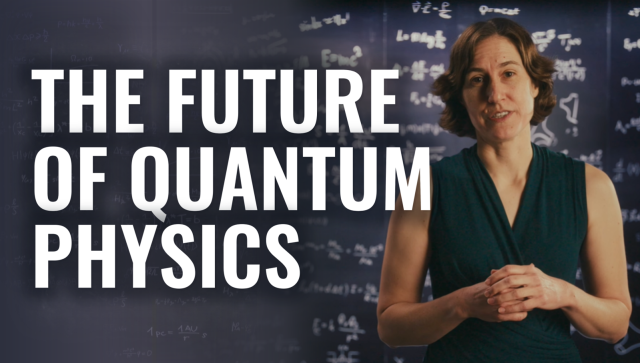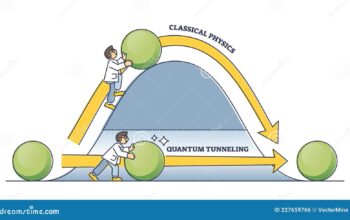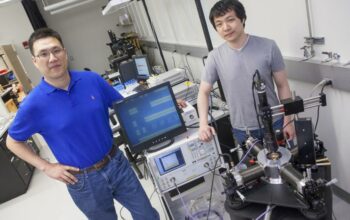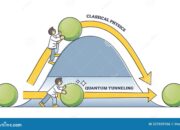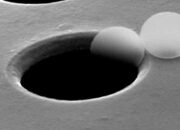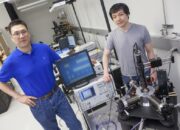How hard is it to be a quantum physicist? To engage with such a playful question is not merely to probe the surface; it invites a profound exploration into the labyrinthine complexities of quantum mechanics itself. The journey towards becoming a quantum physicist, fraught with intellectual rigors and metaphysical conundrums, presents both challenges and rewards. This inquiry proffers a glimpse into the peculiar yet exhilarating world of quantum science, where classical intuitions often falter.
At the outset, one must scrutinize the extensive educational requirements that form the bedrock of a career in quantum physics. Typically, aspiring physicists embark on a strenuous academic voyage, often starting with an undergraduate degree in physics or a closely related field. The curriculum is laden with a plethora of demanding subjects, including advanced classical mechanics, electromagnetism, thermodynamics, and, crucially, introductory quantum mechanics. Mastery of these foundational topics is not merely preferable; it is essential. Engaging with abstract concepts such as wave-particle duality, superposition, and entanglement requires a cognitive apparatus capable of processing information that often defies conventional logic.
Once the undergraduate hurdles are surmounted, the prospective quantum physicist may ascend to graduate studies, where the challenge intensifies exponentially. Here lies the daunting endeavor of selecting a specialized area of research—quantum information theory, condensed matter physics, or quantum field theory, to name but a few. Each branch requires not only an intricate understanding of established theories but also the ability to navigate the uncharted territories of human knowledge. Graduate students are not merely passive recipients of information; they are expected to engage in rigorous research, which frequently entails formulating novel hypotheses and conducting intricate experimental or theoretical investigations.
Moreover, the process of obtaining a Ph.D. is a formidable trial that involves prolonged periods of intense focus and critical thinking. A doctoral candidate must produce a dissertation that contributes original findings to the field, a task that often entails traversing numerous intellectual obstacles. The road to a doctorate can be riddled with frustration, particularly when experiments yield null results or theoretical models fail to align with empirical data. This aspect raises an intriguing question: how does one cultivate resilience in the face of persistent setbacks? In the realm of quantum science, such resilience is indispensable.
Intellectual demands aside, the emotional and psychological challenges of pursuing a career in quantum physics are equally significant. The persistent pressure to publish research findings in high-impact journals can lead to stress and anxiety. The competitive nature of academia exacerbates this phenomenon, as peers vie for limited resources and recognition. The age-old adage “publish or perish” looms large over the scholarly landscape. Additionally, the isolation that can accompany independent research, particularly in theoretical disciplines, can foster feelings of alienation. It is within this crucible of competition and solitude that one must find camaraderie, often seeking solace in collaborative endeavors or interdisciplinary exchanges.
Yet, amid the labyrinth of academic rigor and emotional trials, the pursuit of quantum physics offers unique avenues for intellectual gratification and discovery. The thrill of unearthing novel insights into the fundamental nature of reality is an intoxicating lure. The quantum realm, with its enigmatic phenomena, challenges our most entrenched beliefs and propels individuals to confront the very fabric of existence. Engaging with the work of luminaries in the field, such as Planck, Einstein, Dirac, and Feynman, becomes a source of inspiration, igniting the flames of curiosity and motivation.
Furthermore, advancements in quantum technologies, including quantum computing and quantum cryptography, elucidate the increasingly practical applications of quantum theory. This burgeoning field not only offers career prospects but also demonstrates the profound societal implications of quantum scientific advancements. Engaging with cutting-edge research can be immensely rewarding, fostering a sense of purpose and impact in a world increasingly reliant on sophisticated technological solutions.
In addition to the academic rigor and emotional challenges lies the necessity for ongoing self-education and adaptation. Quantum physics is a rapidly evolving discipline, and remaining abreast of current developments is imperative. This continuous learning—often through attending conferences, participating in workshops, or engaging in collaborative projects—forces quantum physicists to become lifelong learners, adept at navigating an ever-changing research landscape.
Ultimately, the journey to becoming a quantum physicist is an odyssey filled with challenges that test both the intellect and character. It is a path that demands not only academic prowess but also emotional resilience and a genuine passion for discovery. Within this realm of scientific inquiry lies an invitation to partake in a grand narrative that stretches beyond mere numbers and equations; it is an exploration of our universe at its most fundamental level.
In conclusion, one cannot facilely determine how hard it is to be a quantum physicist. It is a multi-faceted question, inviting exploration of the challenges inherent within the pursuit of knowledge. The friction between aspiration and reality shapes the identity of those who wish to delve into this fascinating discipline. For those who thrive amidst complexity, who revel in the nuances of thought and challenge conventional wisdom, the pursuit of quantum physics represents an unparalleled adventure—daunting, indeed, yet profoundly rewarding.
